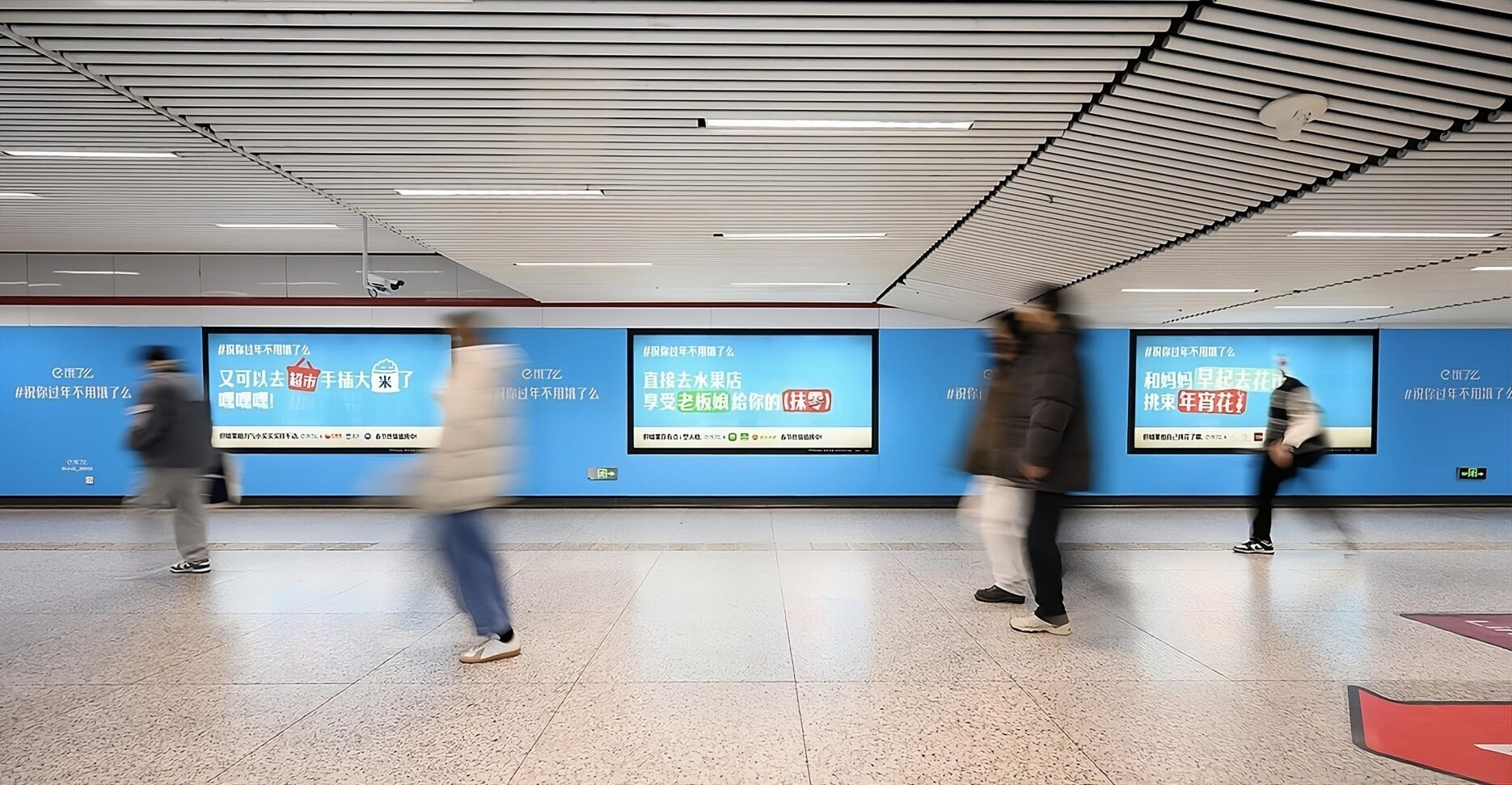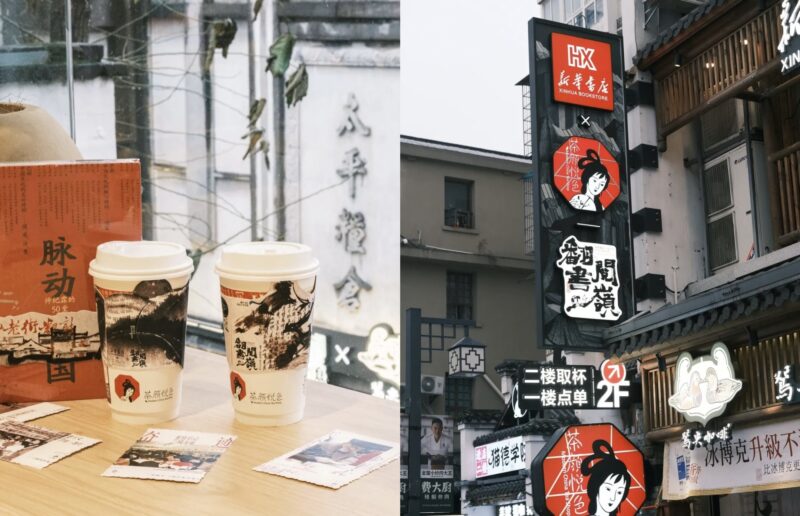Ahead of the Chinese New Year, busy commuters at Xujiahui station in Shanghai noticed that the metro station had been taken over by blue billboard ads. Titled “CNY Initiative Exhibition”, the series of ads proposes the initiative of “Wish you not use Ele.me this CNY”. The ads are not, as some jokingly said, from competitor Meituan, but from Ele.me itself.
The ads are mostly white text on the brand’s signature blue background. From asking your mom for food and haggling in the market in your local dialect, to asking your little brother to run errands, they describe festive or mundane scenes at home. At the same time, another set of ads were painted on the walls in villages, with some written in dialects but of similar content. All the ads convey the same message, eat at home, buy in markets, we hope you don’t need us this New Year.
On Weibo, China’s Twitter-like platform, the topic “wish you don’t need Ele.me this CNY” (#祝你过年不用饿了么#) amassed a whopping 220 million views. One user shared that the ads made them tear up and others praised Ele.me’s understanding of the significance of home during the Chinese New Year. On Xiaohongshu (RED), a post of the ads by a user gained 39,000 likes. There are also anecdotal reports of the ads taking over their WeChat Moments timeline.
However, as with most campaigns, some have voiced their concerns. Critics doubt the sincerity of the message and call the ads gimmicky, which can do more harm than good to the brand. Others were concerned that it is betraying (“背刺”, lit. backstabbing) those who continue to use the platform throughout the holiday season, as it implies that ordering takeaways is not having a happy Chinese New Year. Others find that the stereotypical “mom by the hob” and “woman in the kitchen” stigmatise women.
But the ads are mostly visible in metro stations and the countryside. This means commuters and those who return to their rural homes are the intended audiences. The message of festivity at home and holiday with family resonates deeply with the demography, as shown in the online reaction.









